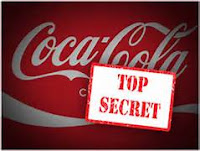CALL TODAY FOR A FREE TELEPHONE CONSULTATION AT NO COST TO YOU
610-647-5027
Pennsylvania Trade Secret Act
In 2004, Pennsylvania's legislature enacted "The Uniform Trade Secret Act." The Act defines a "Trade Secret" as follows:
Information, including a formula,
drawing, pattern, compilation including a customer list, program, device,
method, technique or process that:
(1) Derives
independent economic value, actual or potential, from not being generally known
to, and not being readily ascertainable by proper means by, other persons who
can obtain economic value from its disclosure or use.
(2) Is
the subject of efforts that are reasonable under the circumstances to maintain
its secrecy.
A company that believes that its former employee has misappropriated trade secrets can seek an injunction to stop the employee from using same to his/her advantage, and may obtain monetary relief as well. However, trade secrets are relatively rare, and it is typically a departing employee's taking and use of plain, old-fashioned Confidential information that leads to problems.
Are Company Documents That List Contact Information for the Company's Clients, Customers, Vendors, Suppliers, Partners and Business Associates Trade Secrets?
 |
| Bad Idea! |
Courts asked to determine whether, under Pennsylvania law, a given piece of information is a "Trade Secret" rely upon the definition found in the Act and precedent created subsequent to same.
In its 2015 Decision in WMI Group, Inc. v. Fox, Pennsylvania's Superior Court Held That an Employer Was Not Entitled to an Injunction Against an Employee Who Took Customer Lists Because the Lists Were Not Trade Secrets Under the Uniform Trade Secret Act
In 2015, the Pennsylvania Superior Court decided that a company's "customer information, contracts, and prices" were not trade secrets. After setting forth the definition of "Trade Secrets" found in the Act, and citing numerous cases, the court stated the essence of its decision:
“[I]f a competitor could obtain the information by legitimate means, it will not be given injunctive protection as a trade secret.” Shepherd v. Pittsburgh Glass Works, LLC, 25 A.3d 1233, 1245 (Pa. Super. 2011) (citation omitted).
Every case is, of course, fact-specific, but the WMI Group decision is generally consistent with Pennsylvania's Supreme Court precedent established prior to the enactment of the Act; for example, in a 2002 decision, the Court refused to enjoin an employee who had taken customer lists, holding "[i]f the information the employer seeks to keep confidential could be obtained by legitimate means by its competitors, enforcement of the covenant on that basis is not appropriate."
Trade Secret Information Must Be Carefully Guarded by a Company, or It Ceases to be a Trade Secret
The Act states in part that information may be deemed to be a "Trade Secret" only if it "[i]s the subject of efforts that are reasonable under the circumstances to maintain its secrecy." In essence, that means that a true trade secret must be kept under lock and key!
Take, for example, a list
on the names, birth dates, addresses and phone numbers of the company's
employees. This information is certainly not available to the public, and the
average employee cannot get a peek at it. However, if the new secretary to the
HR Manager needs to send out letters to all employees, she is given full access
to the information.
Or, how about customer lists? Sure, sales people working for your employer's arch competitor cannot get their hands on that! However, Joe Smith, who the company hired last week to handle sales in the Northeast, gets a list of 300 customers in that region during his first week of work.
Or, how about customer lists? Sure, sales people working for your employer's arch competitor cannot get their hands on that! However, Joe Smith, who the company hired last week to handle sales in the Northeast, gets a list of 300 customers in that region during his first week of work.
So, what is a true trade secret?
Something that is kept hidden away, in a vault only few know the combination to...
 |
| The Gold Standard of Trade Secrets |
Click Here for List of World's 10 Most Valuable Trade Secrets.
The recipe that is used to make Thomas's
English Muffins, with all of those delightful, essential nooks and crannies, is without question a trade secret.
Click Here to read the Third Circuit's 2010 decision in Bimbo Bakeries v. Botticella, a Pennsylvania case in which the Court issued an injunction prohibiting Chris Botticella, an executive at Bimbo Bakeries who had signed an employment contract with a Confidentiality clause, from working for Hostess because he was one of only 7 people who knew the recipe for English Muffins, which was without question a "Trade Secret."
Even if Customer Lists, are Not Trade Secrets in Pennsylvania, an Employee Who Misappropriates Such Information and Uses it for Gain at His/Her New Job Will be Held to be in Violation of a Confidentiality Clause in His/Her Employment Contract
While the company's customer list
may not be a trade secret, per se, it is the company's property, and it is
confidential. So, if you are a new employee who is required to sign an Employment Agreement that includes a Confidentiality
covenant (and they all do), that means that you may not take and use for your own benefit information that the company developed over the years, through marketing, trial and error and good old fashioned hard work.
 |
| Confidential Information Does Not Have to be a Trade Secret |
CALL TODAY FOR A FREE
TELEPHONE CONSULTATION AT NO COST TO YOU
610-647-5027
Philadelphia
Area Non-Compete Lawyer
Thanks for checking in with
us.




